#koreanforbeginners
Text
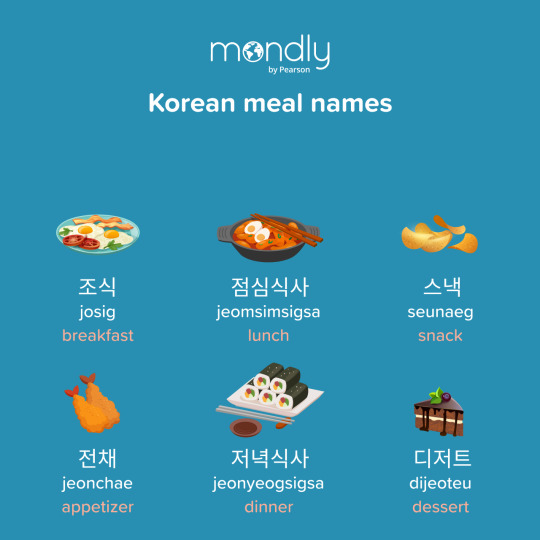
Annyeong, Mondly learners! 👋 Ready for a tasty Korean lesson? 🤤
#mondly#MondlybyPearson#languages#languagelearning#korean#learnkorean#koreanlesson#speakkorean#koreanonline#koreanteacher#koreanforbeginners#koreanlanguage#koreanlearning#foodie#yummy#koreanfood#ramyun
5 notes
·
View notes
Photo

Last point is Most Important 🔥🔥 @languagehacking @lindsaydoeslanguages @mondlylanguages #languagestudy #languagelearner #languagelearning #didyouknow #koreanonlineshop #koreanclasses #speakkorean #learnkorean #koreancourse #koreanforbeginners #language #koreanlanguage #korea #languageteacher #koreanteacher #india #delhi #mumbai #kolkata #chennai #btsarmy #blinks #btsdance #btsbutter (at KOLKATA-কোলকাতা) https://www.instagram.com/p/CPXiPLmMAlz/?utm_medium=tumblr
#languagestudy#languagelearner#languagelearning#didyouknow#koreanonlineshop#koreanclasses#speakkorean#learnkorean#koreancourse#koreanforbeginners#language#koreanlanguage#korea#languageteacher#koreanteacher#india#delhi#mumbai#kolkata#chennai#btsarmy#blinks#btsdance#btsbutter
0 notes
Text
📚 Introduzione alla Lingua Coreana: 🇰🇷 ▶ Hangul BookSet di 4 Libri di Livello Elementare partendo da 0 ✎ : Costruisci le basi del tuo apprendimento del coreano! ✅ Organizza lo studio 📌 in modo giocoso! ** ■ Making more use of this Hangeul BookSet of 4 Volumes day by day 📈 it allows you to acquire practical experience on how the korean alphabet works 🎯 in a playful way! It includes plenty of exercises ✍️ * *Nail down ⚙️ your korean pronunciation by listening to the mp3 sounds!
➤ PRODUCT PAGE
#lingua coreana#libri#korean#한국어학습#koreanforbeginners#coreano#lingue#lingue straniere#korean alphabet#hangeul#hangul#korean language#corea del sud
0 notes
Photo
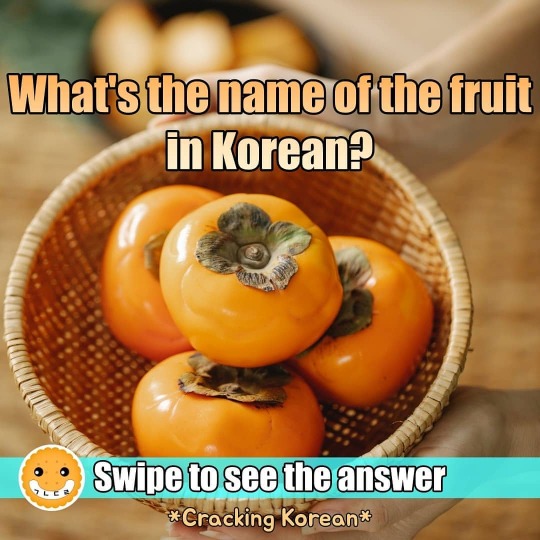
Can you guess the name of the juicy fruit in Korean? What is the persimmon called in Korean? Swipe to see the answer. #learnkoreanwords,#koreanvocab,#koreanforbeginners,#koreanlanguagelesson,#persimmonkorea,#kpoploves,#koreandramaaddicted,#koreangrammarlesson,#koreanlanguagenotes,#couponcodes,#blackpink,#twice,#basickoreanonline,#btskoreanpop https://www.instagram.com/p/CMYSEijhvqO/?igshid=9s6we84hjra5
#learnkoreanwords#koreanvocab#koreanforbeginners#koreanlanguagelesson#persimmonkorea#kpoploves#koreandramaaddicted#koreangrammarlesson#koreanlanguagenotes#couponcodes#blackpink#twice#basickoreanonline#btskoreanpop
0 notes
Text
반말 (INFORMAL) vs 존댓말 (FORMAL)
There are four factors which you must consider in determining which level of speech to use.
1. Difference in Age between Speaker and Listener.
If all else is equal, your age relative to the listener will determine the level of speech to use. If you are in your twenties and start a conversation with an elderly Korean man, you are the 후배 (junior) and he is the 선배 (senior). You will address him using 존댓말 (formal) and he may address you using 반말 (informal). But the age difference does not need to be large. If you meet someone for the first time and learn that they are one year older than you, then you should definitely be using 존댓말 (formal) when you speak to them. And it’s perfectly acceptable for the person you just met to use 반말 (informal) with you, if they choose.
Koreans are obsessed with people’s age, and for good reason! It is such an important part of establishing conversational tone. This is why Koreans will almost always ask you how old you are when you first meet. It’s a common question that’s built into normal introductions. Sometimes it takes different forms, though. One person may come right out and ask you for your age. Others will ask what year you graduated high school or college. Koreans have nearly turned this into an art form — with a million clever variations of questions that only serve to determine the listener’s age.
2. Difference in Social Status between Speaker and Listener.
If all else is equal, your social status relative to the listener will determine the level of speech to use. Imagine you’ve been working for a Korean company for the past four years. If you are introduced to someone who is higher in rank or job title than you are, then you are the 후배 (junior) and the other person is your 선배 (senior). If you’re both the same rank in the company but he joined the company one year after you, then you would be the 선배 (senior) and he would be your 후배 (junior).
▪ What if you are higher ranking than the listener but he is clearly much older than you? What then?
You should probably both be using 존댓말 (formal) until you mutually agree to drop the formal endings (반말).
▪ What if you work for different companies with entirely different organizational structures? Who’s higher ranking? Don’t know? Well, then let’s find out who’s older!
3. Psychological Distance between Speaker and Listener.
This is a little trickier to explain. This axis ranges from ‘Complete Stranger’ at one end all the way up to things like best friends, intimate lovers, and family members at the other. This is essentially how “close” you and the listener are. And it can completely trump the age and social status factors already discussed.
Example:
I once met a young lady who owned a tiny little coffee shop in Seoul. She was in her twenties and I was in my mid-thirties. But we had mutual interests and soon became good friends. It wasn’t long before we were speaking to one another in 반말 (informal). I was older than her, so if we hadn’t been close, she should have been using 존댓말 (formal) with me. I, being older, had a slightly more established and traditional career, so my social status would have also demanded that she address me with 존댓말 (formal). However, once we became friends that changes. Friends don’t speak to one another in 존댓말 (formal). Work colleagues do. Acquaintances do. But not friends. Friends use 반말 (informal).
Level of speech in Korean is such a strong indicator of psychological closeness that it is, literally, a precursor to becoming friends.��If I had never invited my new friend to drop the formal ending when she spoke to me, we wouldn’t have become friends at all. Likewise, if I had continued to address her using formal speech, it would have been a clear indicator that I intended to keep a certain measure of psychological distance between us. So, not only does the level of speech indicate the psychological distance between speaker and listener, it can also determine it.
4. Environment in which the Conversation Takes Place.
Just as psychological distance can override considerations of age and social status, the environment where the conversation takes place can make the appropriate level of speech rise or fall. Consider the example above of my friend in her early twenties, me in my mid-twenties. Even though we were friends and completely comfortable using 반말 (informal) with one another, there are many situations where it would be inappropriate to do so. As I mentioned, she owned a coffee shop and I would often stop in from time to time, sometimes bringing along work colleagues or other friends who are roughly the same age as I am. In this situation it would be inappropriate for her to walk up and address me using 반말 (informal). In the context of this situation, she was the service provider and I was the customer. Furthermore, the fact that I was with several others who were also older than her dictated that she use 존댓말 (formal) in this situation.
Now, imagine that one day we decide to meet at a nearby department store. I arrive to find that she is finishing up something else with several of her friends — all of whom are younger than I am. You might think that because she is younger, and because I could be considered socially higher in status, that it would be perfectly acceptable to use 반말 (informal) with her in this situation. I mean, we’re really good friends who use 반말 (informal) all the time, so what’s the problem? The problem is the context of the conversation. Imagine what her friends would think about an older guy walking up and speaking to her in such a blunt or intimate manner. It would probably imply a much closer relationship which was not the case. Instead, the polite thing would be to use 존댓말 (formal) while her friends were present and then shift down into 반말 (informal) once it was just me and her again.
3 notes
·
View notes
Text
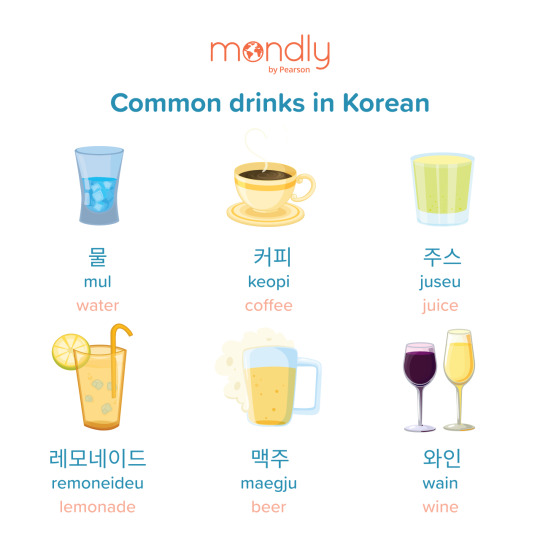
Must-have vocab for a trip to South Korea. 🤙 ✨ What's your favorite drink? 🍹
#mondly#MondlybyPearson#languages#languagelearning#korean#learnkorean#koreanlesson#speakkorean#koreanonline#koreanteacher#koreanforbeginners#koreanlanguage#koreanlearning#koreanwords#koreanfan#ilovekorean
1 note
·
View note
Text

Let's start this week with a short Korean lesson. Here's what we call the four cardinal directions! 🧭
#mondly#languages#languagelearning#korean#speakkorean#koreanlanguage#koreanapp#koreanlesson#koreanforbeginners#koreanteacher#learnonline
2 notes
·
View notes
Text
Do you want to learn Korean? 🤩 There's a lot more useful content waiting for you in the Mondly app! 🧐
#mondly#languages#languagelearning#learnlanguages#freeapp#languageapp#learnonline#didyouknow#korean#learnkorean#koreanlesson#koreanapp#koreanforbeginners#koreanlanguage#koreanteacher#koreanclass#koreanlearning#koreanonline#learningthroughplay#geography#landforms#korea#visitkorea#btsarmy
1 note
·
View note
Text

You knew Korean was going to be unique. 😆 Today is #WorldSleepDay. 😴 How do you celebrate? 🛌
#mondly#languages#languagelearning#korean#southkorea#korea#visitkorea#koreanlanguage#koreanonline#koreanforbeginners#koreanlesson#koreanteacher#koreanapp#koreanfacts#worldsleepday
1 note
·
View note
Text
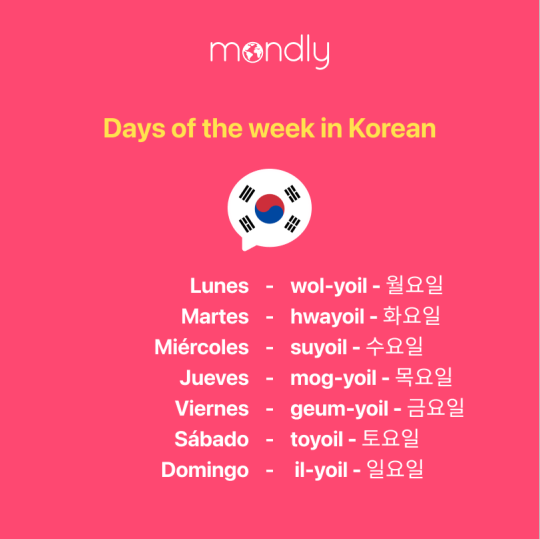
Start the week on a high note by learning something new! 🤠 Here's a short lesson to get you started with Korean Basics. ✌️
#mondly#languages#languagelearning#didyouknow#korean#learnkorean#visitkorea#koreanlanguage#koreanonline#koreanforbeginners#koreanapp#koreanlesson
0 notes
Photo

Last point is actually a Personal Motivation and Reason for learning the beautiful Language of Korean 💜 @languagehacking @lindsaydoeslanguages @mondlylanguages #languagestudy #languagelearner #languagelearning #didyouknow #koreanonlineshop #koreanclasses #speakkorean #learnkorean #koreancourse #koreanforbeginners #language #koreanlanguage #korea #languageteacher #koreanteacher #india #delhi #mumbai #kolkata #chennai #btsarmy #blinks #btsdance #btsbutter (at Delhi, India) https://www.instagram.com/p/CPVZ0LMsI7-/?utm_medium=tumblr
#languagestudy#languagelearner#languagelearning#didyouknow#koreanonlineshop#koreanclasses#speakkorean#learnkorean#koreancourse#koreanforbeginners#language#koreanlanguage#korea#languageteacher#koreanteacher#india#delhi#mumbai#kolkata#chennai#btsarmy#blinks#btsdance#btsbutter
0 notes
Photo
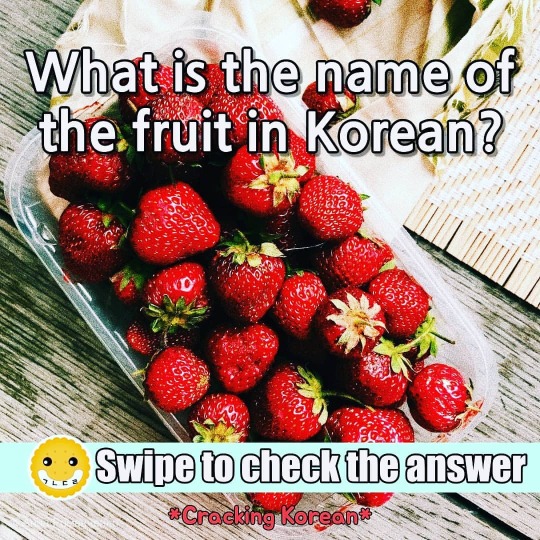
Red strawberries are perfect ingredients for smoothies. Think about the name of a strawberry in Korean. Then, Swipe to check the answer. #learnkoreanwords,#koreanbeginners,#koreanflashcards,#freekoreancourse,#Koreanstudy,#koreanbeautyfood,#redfruits🍓,#strawberrykorean,#koreanforstrawberry,#koreanforbeginners,#blackpink,#nct,#twice,#koreandramaaddicted https://www.instagram.com/p/CLrTgE9jdAs/?igshid=aic2ojopbaos
#learnkoreanwords#koreanbeginners#koreanflashcards#freekoreancourse#koreanstudy#koreanbeautyfood#redfruits🍓#strawberrykorean#koreanforstrawberry#koreanforbeginners#blackpink#nct#twice#koreandramaaddicted
0 notes
Photo
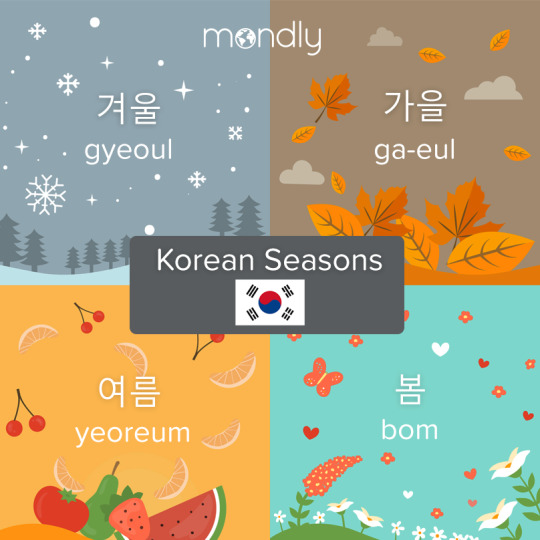
Korean practice o'clock! Take a few minutes to add these new words to your Korean vocab. ⏰ 📚
. . .
#mondly #languages #languagelearning #didyouknow #learnlanguages #language #languageeducation #korean #studykorean #koreanlanguage #koreanlesson #koreanonline #koreanforbeginners #koreanstudy #learnonline #learnkorean #practice #fluency #education #koreanapp
1 note
·
View note